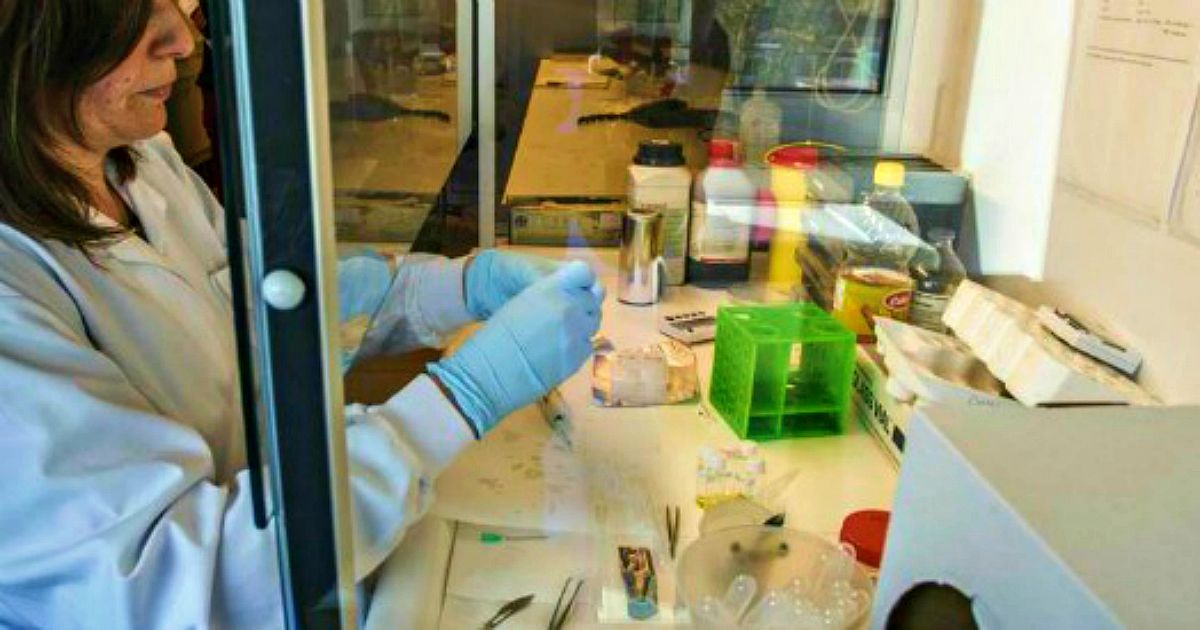They begin to forget some things, to get to the point where they can’t even recognize family members anymore. They are the sick affected by the disease of Alzheimer, the most common form of senile dementia with a subtle and difficult to diagnose onset. A new study, published today in Cell Metabolism, lays the foundations for a greater understanding of the disease and opens up the possibilities for more timely diagnosis. In fact, researchers at the University of California at San Diego found that elevated levels of the enzyme PHGDH in the blood would be a early indicator of the onset of Alzheimer’s in the elderlythe. In the study, the researchers analyzed brain tissue and found that expression levels of the gene that codes for PHGDH were consistently higher in adults with different stages of Alzheimer’s disease, even in the early stages before the onset of the disease. cognitive symptoms. The study provides new evidence to support this thesis that had already been highlighted in previous research.
The Alzheimer’s dementia today it affects about 5% of people over 60 and in Italy there are an estimated 500 thousand sick. It is a state caused by an alteration of brain functions which implies a serious difficulty for the patient in carrying out normal daily activities. The disease affects memory and cognitive functions, affects the ability to speak and think but can also cause other problems including states of confusion, mood changes and space-time disorientation.
The new study builds on the previous work of Zhong and colleagues from the University of California who first identified PHGDH as a potential blood biomarker for Alzheimer’s disease. The researchers analyzed blood samples from elderly people and found a sharp increase in PHGDH gene expression in Alzheimer’s patients, as well as in healthy individuals, about two years before they were diagnosed with the disease. The results were promising, and the researchers were curious if this increase could be linked to brain. In this new study, they show that the hypothesis is correct.
For this new study, the researchers analyzed genetic data collected from human brains post mortem from subjects in four different research cohorts, each made up of 40 to 50 individuals aged 50 and over. The subjects were Alzheimer’s patients, so-called “asymptomatic”, that is people without cognitive problems and without an Alzheimer’s diagnosis, but whose brain analyzes post mortem showed early signs of Alzheimer’s-related changes and healthy controls.
The results showed a consistent increase in PHGDH expression among Alzheimer’s patients and asymptomatic individuals in all four cohorts compared to healthy controls. Furthermore, the expression levels were higher the more advanced the disease was. This trend was also observed in two different mouse models of Alzheimer’s disease. The researchers also compared the subjects’ PHGDH expression levels with their scores on two different clinical assessments: the dementia rating scale, which evaluates a person’s memory and cognition, and Braak staging, which assesses the severity of Alzheimer’s disease based on brain pathology. The results showed that the worse the scores, the higher the PHGDH expression in the brain.
“The fact that the level of expression of this gene is directly related to a person’s cognitive abilities and pathology of the disease is remarkable,” said Zhong. “Being able to quantify both of these complex metrics with a single molecular measurement could potentially make diagnosing and tracking the progression of Alzheimer’s much easier.” Another very interesting insight into the future of Alzheimer’s cure refers to the use of food supplements that contain the amino acid serine. Researchers urge caution in the use of such substances as, based on this new research, taking additional serine may not be beneficial. Indeed, PHGDH is a key enzyme in serine production and the increased expression of PHGDH found in Alzheimer’s patients suggests that the rate of serine production is also increased in the brain.
“It is exciting that ours previous discovery of a blood biomarker is now corroborated by brain data, ”Zhong said. “We now have strong evidence that the changes we see in human blood are directly related to the changes in the brain in Alzheimer’s disease,” said Sheng Zhong, professor of bioengineering at UC San Diego Jacobs School of Engineering and author of the study. Researchers are studying how this discovery of PHGDH gene expression modification will affect disease outcomes, as the approach could lead to new treatments for Alzheimer’s.
Paola Perrotta
Archive photo
